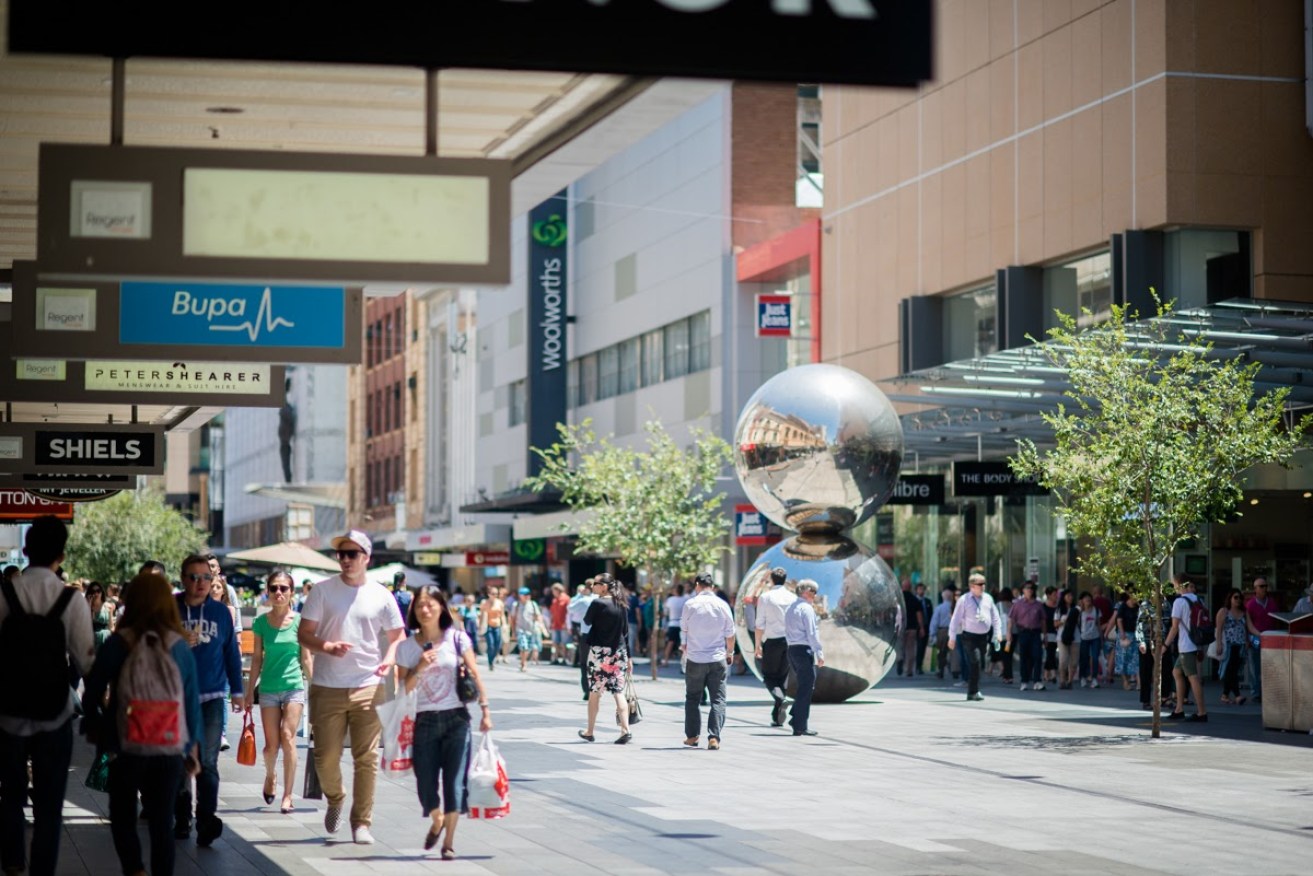Increasing skilled migration will make SA stronger
As debate rages about immigration in Australia, we need to ignore the hysterical headlines and remember the old mantra – ‘populate or perish’.


Population growth is steaming ahead on the eastern seaboard but not in SA.
Population growth and the hard work of many migrants has propelled the Australian economy and made us the prosperous country we are today.
This week the media fanfare will begin as Australia officially reaches the milestone of 25 million people. It’s hardly that significant on a global scale considering Beijing alone has a population of more than 21 million, but it’s a big deal on the official ABS clock. Of course, growth has been rocketing recently mostly in the east coast cities of Sydney and Melbourne. This has caused our Sydney-centric politicians to worry, especially given the escalating real estate prices and the general congestion and sprawl that’s come as a by-product. New figures indicate the government might be putting the brakes on. The Home Affairs Department now shows permanent migration program figures have dropped in the past year to 162,417 (down from 183, 608).
Let’s hope this isn’t part of a downward trend because South Australia and other smaller states like Tasmania still desperately need a piece of the immigration action. With too many people leaving SA and an ageing demographic, our state will be in dire straits soon without more deliberate and sustained population growth — and the appropriate infrastructure to support it. For this reason, Premier Steven Marshall’s plan to lure additional migrants with a new skilled visa program should be commended – and supported.
We simply can’t let the naysayers detract us from the very real benefits that immigration can provide. Rather, we should focus on facts.
People coming to Australia on the permanent migration program are educated, skilled and ready for work. A majority of them have university degrees, with a further percentage having a trade or management skills. These people and their families support the labour market and boost the economy. Many skilled migrants have proved to be successful entrepreneurs by starting businesses and creating employment opportunities. This has a flow-on effect throughout the community, supporting wages growth and improved living standards. Importantly, migrants also pay state and federal taxes and spend money locally, which is good for all of us.
Regional areas of South Australia also stand to benefit. The Premier is calling for the Federal Government to list our regions as priority areas for migration. This is a sensible move. Australia is a country with most of the population concentrated in just a few coastal cities. This doesn’t have to be the case. In other countries, regional areas are centres for innovation and industry, offering employment opportunities and a vibrant community. Our newest arrivals could be the lifeline for many towns and would help regional centres to thrive and expand economic activities beyond Adelaide.
International students are also a major source of economic activity contributing more than $32 billion per annum to the Australian economy. According to the Federal Department for Education and Training, more than 556,987 students have come to Australia in the past year to attend our universities or to enrol in schools, VET courses and intensive English language programs. But once again, it’s a two-speed economy as NSW, Victoria and Queensland gain most of the enrolments. We need to grab more market share and sell South Australia as a viable and attractive destination. The Federal Government can support us by channelling more students our way through special student visa programs.
Mass immigration without proper planning can cause problems – but we’ve had enough time to think about this. We’ve seen some of the problems created by poor planning in Sydney and Melbourne; it’s unlikely we’d make the same mistakes here. We must also invest in successfully supporting and integrating new migrants. It shouldn’t be sink or swim.
The ever-wise Bernard Salt wrote about these very issues in the Weekend Australian (August 4-5) saying the key to success is building a culture where we can discuss issues around immigration in a civil manner, and becoming more tolerant and forgiving of others. This is what will secure our future.
As the child of migrant parents who escaped from Cyprus as refugees, I agree with this view. I was raised to appreciate every opportunity Australia has to offer. I studied hard and excelled at law school, yet as a young woman I was too often judged by my background first, not my capability.
Fast forward some years later and this kind of intolerance for those from Greek, Italian or other European backgrounds has all but disappeared. But newer migrants from China, India, the Philippines or Africa may still feel the hard stares and thoughtless remarks.
Australia has prospered largely through the efforts of a very multicultural society. Apart from the Aboriginal people, who should be acknowledged as the first people of this land, we are all either migrants or descentants of migrants. In fact, these days 28 per cent of the population are born overseas, and another 21 per cent have a parent born elsewhere. We need to own this fact and to celebrate our tradition of welcoming new Australians from many different countries.
While future growth should be well planned and sustainable, South Australians need to ignore the fearful voices that seek to divide us with a ‘bunker down’ mentality. Globalisation is not going away – embracing it and discussing workable policies to support our future growth is the only way forward for South Australia.
Andrea Michaels is the managing director of South Australian commercial law firm NDA Law. She is a member of the Labor Party.




